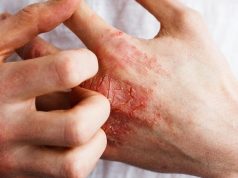Higher positive affect, lower perceived stress seen in association with caring for one’s body, exercising, and engaging in healthy behaviors
By Elana Gotkine HealthDay Reporter
FRIDAY, March 15, 2024 (HealthDay News) — In-person schooling and coping behaviors were associated with higher positive affect (PA) during the COVID-19 pandemic among adolescents with high adverse childhood experiences (ACEs; at least four), according to a study published online March 13 in JAMA Network Open.
Julia H. Raney, M.D., from the University of California in San Francisco, and colleagues examined factors associated with improved mental health during the COVID-19 pandemic among adolescents with ACEs in a cross-sectional study using data from the baseline (2016 to 2018) and sixth (March 2021) COVID Rapid Response Research surveys of the Adolescent Brain Cognitive Development study. Adolescent-reported PA and perceived stress (PS) were the primary outcomes.
The researchers found that caring for one’s body, exercising, and engaging in healthy behaviors were associated with higher PA (B = 4.02, 3.19, and 4.07, respectively) and with lower PS (B = â0.92, â1.41, and â1.01, respectively) scores among youths with high ACEs. Compared to youths with low-to-intermediate ACEs (one to three), for those with high ACEs, in-person schooling had a greater impact on PA scores (B = 5.55 versus 1.27).
“As we prepare for potential future crises, we recommend that future studies build on these findings so that clinic and policy guidelines, as well as parents and educators, may identify protective factors to promote health equity and improved mental health among these adolescents at high risk of poor outcomes,” the authors write.
Copyright © 2024 HealthDay. All rights reserved.








